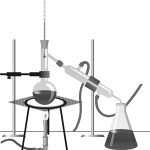How many times on that 3rd or 4th Thursday of November, the loosened belt and a cozy spot on the couch turns into an afternoon of catching z's instead of catching the football game. Inevitably, you'll hear the term "turkey tryptophan" as the culprit.
Amino acids are essential building blocks in the human body. In addition to their roles as neurotransmitters and biosynthesis, amino acids also play a role in protein formation. Some amino acids can be encoded from the genetic code, others must be obtained via diet. L-Tryptophan is an essential amino acid and must be obtained via diet in various high protein foods (turkey, chicken, beef, eggs, cheese, etc...)
In the body, Tryptophan is a key component in synthesizing niacin, but can also undergo hydroxylation to form serotonin in the brain. Serotonin, in addition to being generally known as the 'happiness' chemical is also converted into melatonin which can be used to help regulate the circadian rhythm.
Everything you have read so far would seem to make the argument for turkey as the main culprit for Thanksgiving coma, however this is likely not the case. As mentioned above, other poultry, cheeses, and dairy actually contain more tryptophan than turkey, but are not generally associated with drowsiness. In order for Tryptophan to actually be most effective, it would need to be taken on an empty stomach. Most Thanksgiving meals have a few other dishes that go along with it, generally being heavy in the carbohydrate category.
One study in rats have shown that a diet high in carbohydrates trigger release of insulin that will actually lead to an uptake of certain types of amino acids (branched-chain amino acids) into muscle tissue. This will lead to an increased concentration of other types of amino acids, including tryptophan, in the bloodstream. This increased concentration in the bloodstream makes it easier for tryptophan to cross the blood-brain barrier.
A separate study suggests that carbohydrates actually are the shuttling mechanism of the tryptophan across the blood-brain barrier.
So what could cause the post-feast drowsiness? Some top candidates may include alcohol consumption as well as the shunting of blood to the stomach to aid digestion which lowers oxygenation of the brain. However, at the end of the day, this may just all be an evolutionary advantage to get out of cleaning all the dishes.
References:
- Emily Deans, M.D. "Do Carbs Keep You Sane?" Evolutionary Psychiatry. 11 March, 2012
- Wurtman, et all. "Effects of normal meals rich in carbohydrates or proteins on plasma tryptophan and tyrosine ratios" American Journal of Clinical Nutrition. 25 April, 2002
- Kevin McCue "Thanksgiving, Turkey, and Tryptophan" American Chemical Society. 22 November, 2004
- David Hiskey "Turkey Does Not Make You Drowsy After You Eat It" Today I Found Out. July 2010
